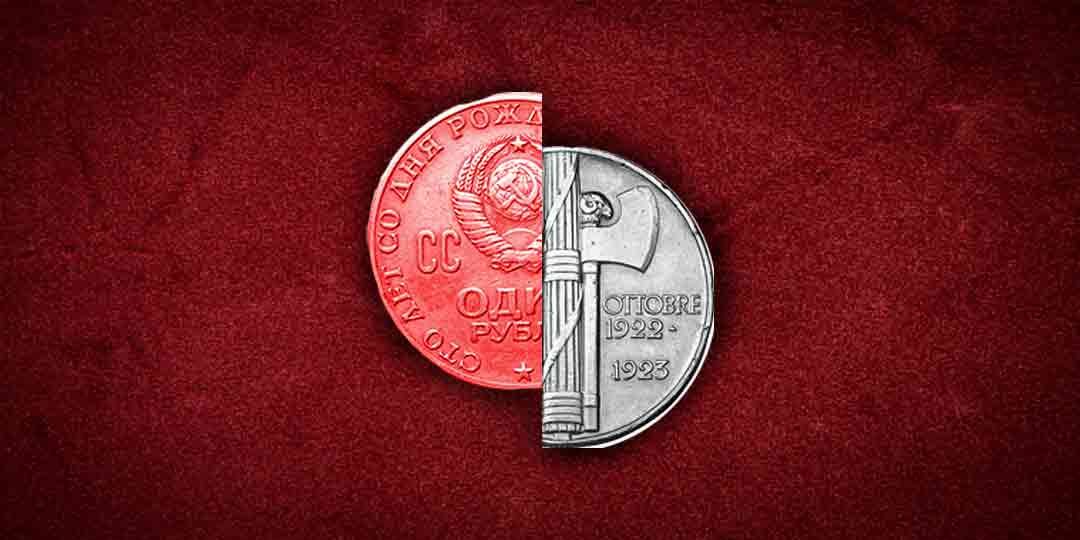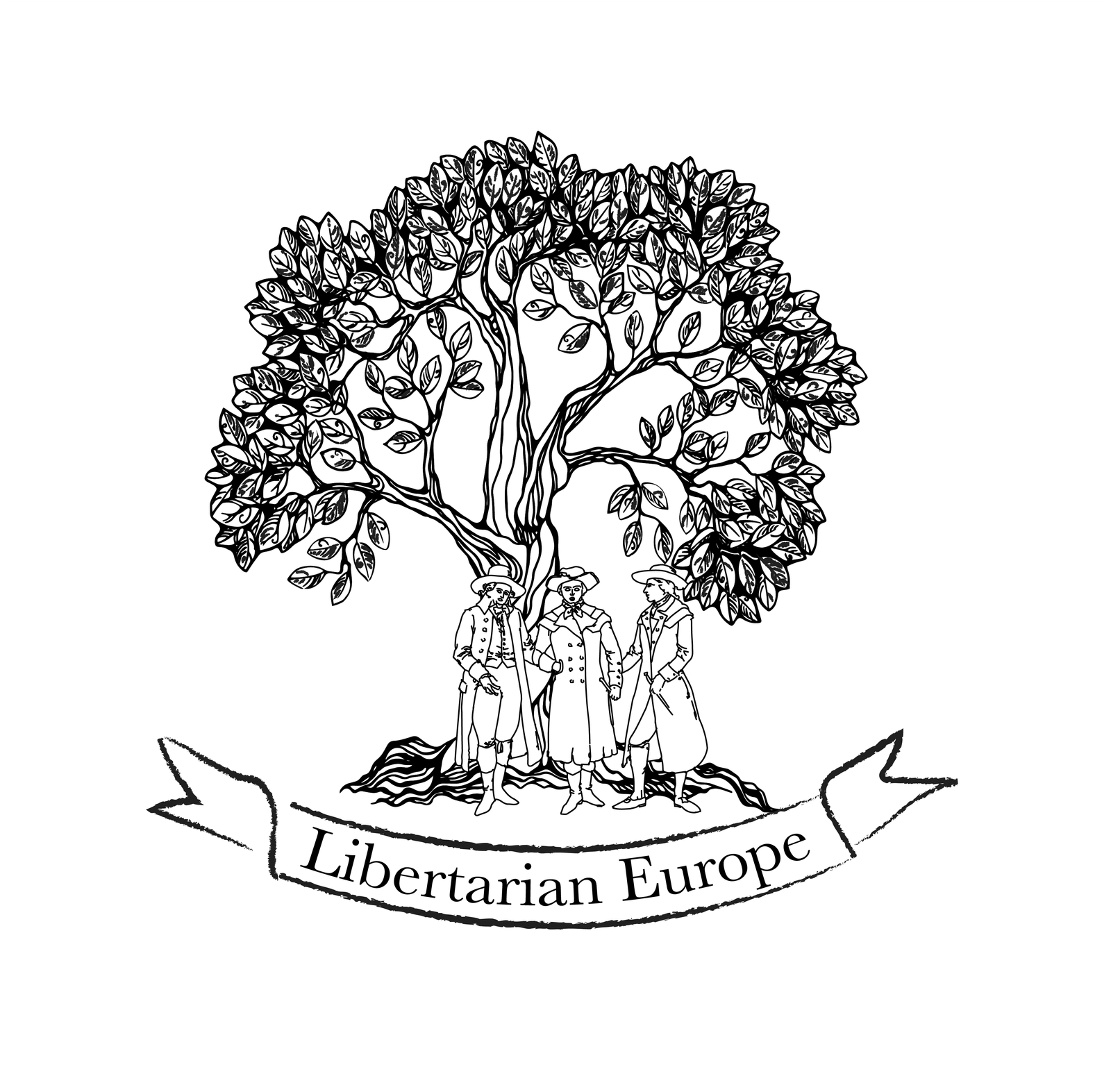
Socialism and fascism: Two sides of the same coin
If we think of what has been the European political debate throughout the last century, undoubtedly, we could not fail to consider it as the product of two big apparently opposite ideologies: socialism and fascism. They have characterized—and they still characterise—, the political life of a whole century, exploiting a specific propaganda which had the goal of creating the idea of two kinds of economic and political structures, born to be genetically contrasting.In fact, they have been much more similar than socialists and fascists would have desired and believed.
Secular religions
Socialism and fascism have been created in the same historical and social period, the one in which the power of Christianity started to lose its ability to affect the masses, and States needed to have another instrument to control the rising public policy (mass grass-roots movements).
Throughout the Nineteenth-century it became clear that the royal dynasties’ legitimacy would have been constituted by the secular religions.
Romanticism produced the idea of nationalism. Rousseau’s concept of General Will had found its application on the idea of Nation founded on people and on people’s cult to themselves. Love for God identified to love for own Nation, something to defend and to die for. Hitler based the construction of his propaganda taking advantage of ancient Germanic traditions, with ceremonies, rituals, and symbols which had the objective of raising the idea of Germany, building a real and actual civil cult.
It was not so different from what Benito Mussolini did in Italy. He was able to use symbols belonging to the Roman Empire, suggesting Italy as its direct descendant. From the opposite side, in an attempt to create an ideology, there was the Marxist prophecy. The Church was represented by the Communist Party, with the writings of Marx and Engels as holy texts, and the enemy identified in bourgeois capitalism.
As Charlotte D. wrote:
Karl Marx left a strong anti-religion inheritance to generations of socialists, but why are religions so incompatible with socialism? Because socialism constitutes a religion in itself. […] The government is seeking to attribute itself the role of God and how in this perspective, socialism is meant to be imposed as the sole religion.
They both succeeded in creating a secular religion with its own rituals, myths, symbols and traditions that had the only goal of sustaining the ideology.
The process of secularisation produced by French Revolution carried on the creation of two patterns of political control, and even if they have faced each other, trying to show themselves as representors of opposite offers, they both have been the consequence of the effort to control the masses through the same political and economic principle: Collectivism.
Collectivism vs Individualism
Looking at the features of socialism and fascism, it appears quite clear that they have a specific common thread that links their idea of society.
According to those doctrines, the individual should lose its peculiarity and it should be reduced to a collective dimension in which it is no more a unique representation of itself but it becomes part of organic society, where its individual rights are bent in favour of collective ones.
Regarding that, Ayn Rand wrote:
The essential characteristic of socialism is the denial of individual property rights; under socialism, the right to property (which is the right of use and disposal) is vested in “society as a whole,” i.e., in the collective, with production and distribution controlled by the state, i.e., by the government.
Socialism may be established by force, as in the Union of Soviet Socialist Republics—or by vote, as in Nazi (National Socialist) Germany.
Theoretically, the differences are superficial; practically, they are only a matter of time. The basic principle, in all cases, is the same.
Ayn Rand’s thought could not be clearer: “Fascism, Nazism, Communism and Socialism are only superficial variations of the same monstrous theme—collectivism.”
If we look at them from this point of view their differences begin to appear even more nuanced, until they disappear. The pre-eminence of class issue from one side, the national issue from the other one. The only differences to build to try to be different, hiding the real same goal: collectivism of society and destroying individual freedom. They are similar, for this reason they hate each other, because they want to seduce the same kind of electorate.
For example, Benito Mussolini was a leading member of the Italian Socialist Party (Partito Socialista Italiano) before World War I, taking advantage of an anti-socialist position after the war. Moreover, when he had to run away in 1944, founding the Repubblica Sociale Italiana, a National-Socialist Puppet State. He returned to his initial socialist ideas promoting anti-capitalistic propaganda and socialist economic theories.
The common thread appears quite explicit. As Von Hayek said:
Fascism is the stage reached after communism has proved an illusion. […] It is true of course, that in Germany before 1933 and in Italy before 1922 communists and Nazis or Fascists clashed more frequently with each other than with other parties. They competed for support of the same type of mind and reserve for each other the hatred of the heretic. But their practice showed how closely they are related. To both, the real enemy, the man with whom they had nothing in common and whom they could not hope to convince, is the liberal of the old type.
The socialists and the fascists have had the same vision of society, a mass-society in which the general will could stifle every kind of individualism, where everyone does not meet under the Civil Church it has to be convinced with use of force.
This last post cannot be ignored. It is a common mark to all of them: a trail of violence, suffering and death. Hundreds of millions of deaths have been caused in the name of collectivism by left-wing and right-wing socialisms.
Economic Theories and Cultural Idols
As it has been written earlier, their parallels are more evident than their difference. From an economic point of view this consideration obviously does not change. On the contrary, it appears even more manifest.
Economic systems based on socialist values come across as bearers of very similar ideas, in which government control on the economy has to be even stronger, substituting private enterprise.
Again, looking at the examples that history has given us, it seems impossible to be actually of the opinion of being faced with two opposite political worlds, as politicians and intellectuals on both sides have sustained.
Quoting what Von Mises wrote:
Where all prices, all wage rates, all interest rates, in short everything in the whole economic system, is determined by the government. And this, clearly, is socialism. […]
For in Hitler’s Germany there was no private enterprise or private initiative. In Hitler’s Germany there was a system of socialism which differed from the Russian system only to the extent that the terminology and labels of the free economic system were still retained. There still existed “private enterprises,” as they were called. But the owner was no longer an entrepreneur, the owner was called a “shop manager”.
The economic program of Italian Fascism did not differ from the program of British Guild Socialism as propagated by the most eminent British and European socialists.
The Italian system was not so much different. Mussolini, as written earlier, was a fervent socialist who was skilled enough to use revanchist ideas caused by World War I to assume power. Economically, the Italian State had a structure quite similar to what Lenin did in Russia after the economic collapse in 1921, the period called “War Communism” which caused five million people to starve to death.
The Italian fascism passed through an important process of nationalisation of banks, enterprises and industries, adding an autarchy system and a very heavy bureaucratic management. According to what Mussolini declared, three-fourths of the Italian economy, industrial and agricultural, were in the hands of the State.
The facts show an economic goal that nowadays everyone, who does not know to be related to fascism, could easily attribute to a resolute socialist left-wing party. The labels with which different political narratives had called themselves do not change the real state of affairs.
As it has been written so far, socialism and fascism had the same genesis, the same development, the same philosophical idea and economic theory. They are so similar that they have the same cultural idols. A long line of authors and characters who have been ideological masters of a side ending up to pass to the other one.
For example, Nietzsche’s thought inspired National-Socialism, although he became a point of reference for left-wing parties in the second half of the twentieth-century; another relevant example was Georges Sorel, father of French Revolutionary Marxism, who became a great admirer of Lenin and Mussolini; extreme Italian right-wing parties have shown us something even more weird, in fact they had tried to assume as point of reference two of the main socialist exponents: Antonio Gramsci and Ernesto ‘Che’ Guevara.
The thesis about two extreme poles cannot be accepted in any way. If we look at them nowadays, it could not be clearer as their worldview is still quite the same, with only some small differences just made to be able to distinguish them.
If we think about the contemporary main European left-wing and right-wing parties and movements, which have their roots in the last century’s ones, being the direct result, it appears quite clear as their features are still easily linkable to what written so far.
Whereas left-wing socialists have lost the idea of class issue, looking for a new subject to carry on its political narrative, right-wing socialists are quite still on the same historical positions. Most things did not change. They still have a pro-government view, they hate individual freedom and rights, they hate free-market and globalisation, they keep dreaming of the same collective society in which everyone exists only as a part of a group. Hiding behind old principles linked to religion and nationalism, on the right, and behind an oxymoronic idea of egalitarian freedom, on the left, they keep promoting the same political goals whose only objective is-today as in the past-destroying every kind of individual freedom.

